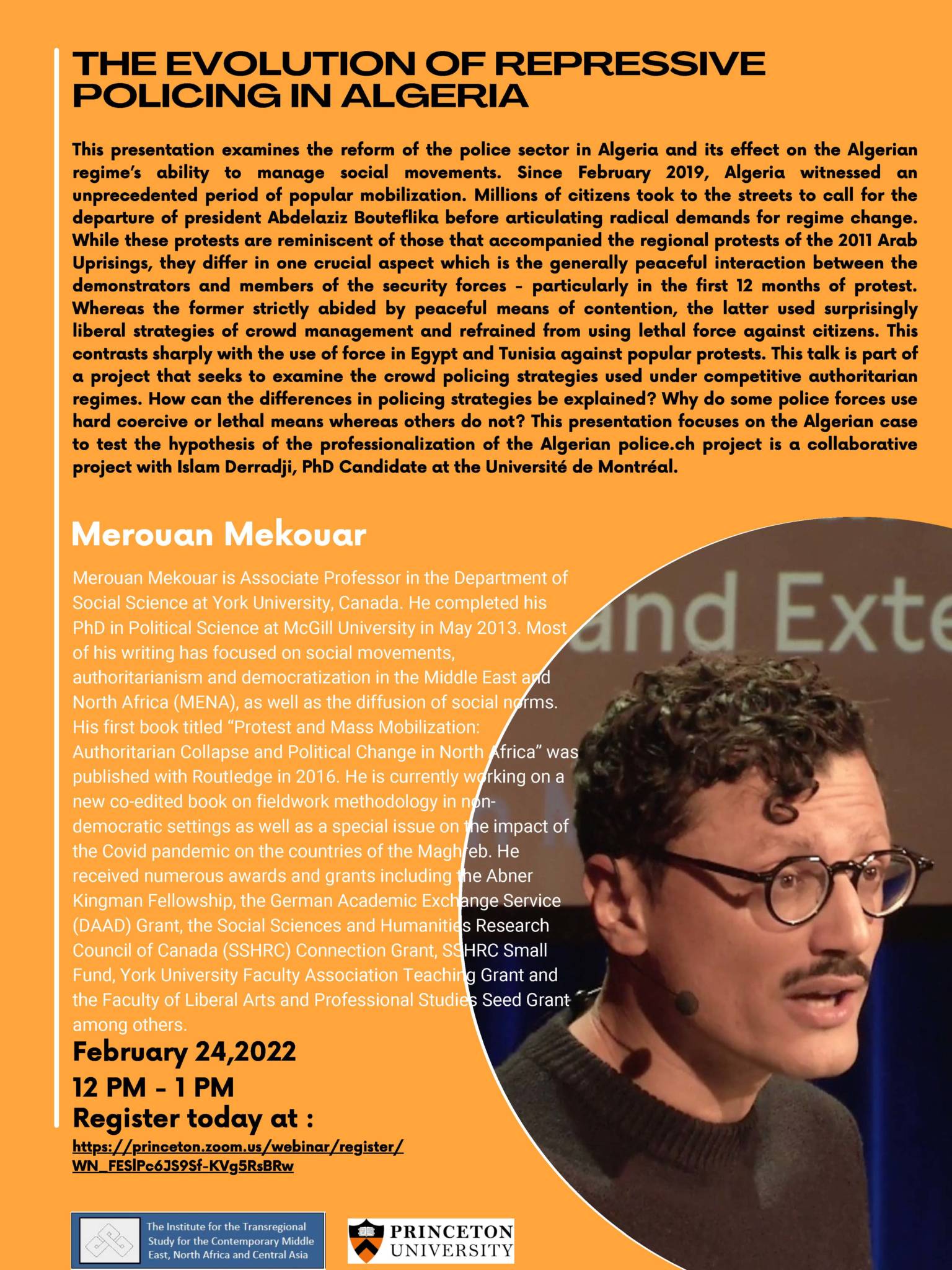
The Evolution of Repressive Policing in Algeria
York University Merouan Mekouar
February 24, 2022 · 12:00 pm—1:00 pm · Zoom
Institute for Transregional Studies (TRI)

This presentation examines the reform of the police sector in Algeria and its effect on the Algerian regime’s ability to manage social movements. Since February 2019, Algeria witnessed an unprecedented period of popular mobilization. Millions of citizens took to the streets to call for the departure of president Abdelaziz Bouteflika before articulating radical demands for regime change. While these protests are reminiscent of those that accompanied the regional protests of the 2011 Arab THE EVOLUTION OF REPRESSIVE POLICING IN ALGERIA Uprisings, they differ in one crucial aspect which is the generally peaceful interaction between the demonstrators and members of the security forces—particularly in the first 12 months of protest. Whereas the former strictly abided by peaceful means of contention, the latter used surprisingly liberal strategies of crowd management and refrained from using lethal force against citizens. This contrasts sharply with the use of force in Egypt and Tunisia against popular protests. This talk is part of a project that seeks to examine the crowd policing strategies used under competitive authoritarian regimes. How can the differences in policing strategies be explained? Why do some police forces use hard coercive or lethal means whereas others do not? This presentation focuses on the Algerian case to test the hypothesis of the professionalization of the Algerian police. The project is a collaboration with Islam Derradji, PhD Candidate at the Université de Montréal.















